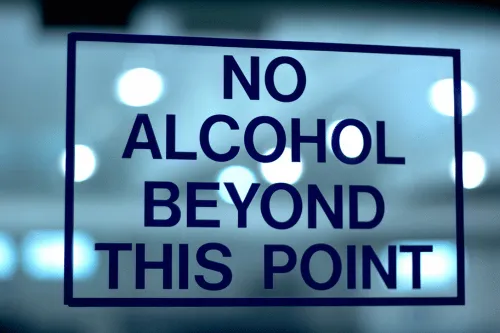
During alcohol detoxification, the body begins reversing the impact of long-term substance abuse and dependence. Since alcohol acts as a depressant on the central nervous system, stopping use triggers a sudden surge in activity within the brain. This reaction disrupts neurotransmitter function—particularly GABA—which is responsible for calmness and relaxation. The imbalance creates nervous system hyperactivity, causing distressing physical and emotional reactions.
As the body adjusts, patients may experience symptoms of detoxing from alcohol such as nausea, vomiting, fatigue, irritability, and headache. The lack of alcohol causes stress hormones to rise, leading to anxiety, shaking, palpitations, and insomnia. These detox effects from alcohol can vary in severity based on medical history, length of drinking, and overall health. Because of the risk of electrolyte imbalance and blood pressure changes, supervised detox is recommended to stabilize the nervous system safely.
At Sullivan Recovery in Mission Viejo, patients receive round-the-clock monitoring and medication support during alcohol detoxification. Treatments may include lorazepam, diazepam, or chlordiazepoxide to prevent seizure or delirium tremens while easing anxiety and muscle tension. This medical approach helps regulate the body’s electrolyte and vitamin levels, reducing complications and allowing the brain to reestablish healthy neurotransmitter balance.

The common withdrawal symptoms of alcohol differ from person to person but typically start within 6 to 12 hours after the last drink. Early signs include restlessness, sweating, trembling, and nausea. Some may experience beer detox symptoms or liquor withdrawal symptoms depending on what type of alcohol they consumed and how often they drank. These initial symptoms are a sign that the central nervous system is attempting to function without alcohol’s depressant effect.
As withdrawal progresses, more severe symptoms of coming off alcohol can occur, including seizure, delirium tremens, fever, and hallucinations. These complications arise when brain chemistry becomes unstable due to disrupted GABA and neurotransmitter signaling. Untreated, this stage can lead to injury or even life-threatening disease such as cardiac failure. That is why professional care in a licensed detox facility like Sullivan Recovery is essential for safety.
Medical teams may use IV fluids to restore electrolyte balance, reduce pressure fluctuations, and address fatigue. Medications like lorazepam and diazepam lower anxiety and stabilize the nervous system, while vitamin therapy supports the liver and brain during recovery. Understanding these symptoms of detoxing from alcohol allows patients and families to seek immediate help, preventing relapse and promoting long-term health.
Many people attempt to quit cold turkey, but this approach is unsafe and can increase the risk of severe withdrawal. Stopping alcohol use suddenly shocks the nervous system, causing dangerous spikes in blood pressure and heart rate.
In some cases, patients need hospitalization or placement in an intensive care unit to manage delirium tremens, seizures, or electrolyte imbalance. These medical complications highlight why professional alcohol detoxification is critical for safety and recovery.

The side effects of detoxing from alcohol affect nearly every system in the body. The liver begins to process toxins that have built up over time, while the blood and organs start clearing leftover chemicals.
Patients may experience nausea, vomiting, and headache as their body stabilizes. Muscle pain, fatigue, and tremors are also frequent complaints. Electrolyte loss through sweating or vomiting can worsen fatigue and create palpitations or confusion. Correcting these imbalances often requires IV fluids and vitamin replacement, particularly thiamine (Vitamin B1), which prevents neurological disease such as Wernicke-Korsakoff syndrome.
Mental and emotional changes are also common during detox effects from alcohol. The brain’s disrupted neurotransmitter activity can lead to anxiety, irritability, depression, and sudden mood swings. These symptoms are part of the common withdrawal symptoms from alcohol and can persist even after physical recovery.
Therapeutic behavior support and therapy sessions help manage these psychological shifts. Treating mental health alongside addiction reduces the likelihood of relapse and strengthens long-term stability.
Medical supervision is key to safe alcohol detoxification. Doctors often prescribe medications like lorazepam, diazepam, or chlordiazepoxide—all part of the benzodiazepine family. These drugs calm the nervous system, prevent seizures, and ease drinking withdrawal symptoms.
In some cases, additional medications help manage blood pressure, nausea, or insomnia. The goal is to maintain comfort and prevent life-threatening complications. Medically assisted detox also allows for continuous monitoring of electrolyte levels and other vital signs.

A patient’s medical history influences how detox is managed. Those with heart disease, liver damage, or previous injury may need specialized care. Understanding past substance abuse, drug use, or mental illness helps clinicians design safer, more effective treatment plans.
Proper assessment ensures the best use of medications like lorazepam or diazepam, reduces adverse reactions, and improves overall prognosis. This comprehensive approach supports healing of both the body and mind during recovery.
During detox effects from alcohol, nutrition plays an essential role in healing. Long-term drinkers often suffer from vitamin deficiencies, especially in B-complex vitamins, which help support brain function and energy metabolism.
Hydration and electrolyte balance are also vital. Replacing fluids and minerals like potassium and magnesium helps stabilize blood pressure and muscle coordination. Restoring nutrients speeds recovery and supports the liver in processing toxins efficiently.
The best way to flush alcohol out of your system is through medically supervised detox, not home remedies or rapid cleanses. While drinking water, eating balanced meals, and getting rest can support recovery, these alone cannot reverse addiction or prevent withdrawal symptoms.
A structured program under medical care ensures that detox happens safely and effectively. Professional monitoring can manage pressure fluctuations, prevent electrolyte imbalance, and address dangerous reactions such as delirium tremens.
The central nervous system plays a major part in alcohol dependence and withdrawal. Alcohol increases GABA activity, which slows brain signaling and produces relaxation. When alcohol use stops, the brain becomes overstimulated, leading to delirium, tremors, and overactive reflexes.
Restoring balance takes time. Therapy and medical treatment help the nervous system recover while teaching patients how to manage cravings and stress. At this stage, the body begins to heal, and long-term sobriety becomes achievable.
Chronic alcohol use increases the risk of multiple health issues. High blood pressure, liver damage, and neurological disease are all linked to prolonged drinking. The body’s ability to regulate electrolyte and hormone levels also declines, creating further imbalance.
Detox reverses many of these effects, but recovery continues beyond physical stabilization. Addressing mental health, behavior, and lifestyle changes through ongoing care helps reduce relapse and restore overall health.
Attempting to manage symptoms of detoxing from alcohol at home can be dangerous. Without medical supervision, seizures, fever, or delirium tremens may develop suddenly. Hospitals or treatment centers like Sullivan Recovery offer safe environments with 24-hour monitoring.
In a clinical setting, medications like chlordiazepoxide or diazepam prevent injury and stabilize pressure and electrolyte levels. Patients also receive nutritional and psychological support, which promotes a stronger prognosis and sustainable recovery.
Once detox is complete, structured therapy remains vital for ongoing recovery. The brain’s neurotransmitter systems—especially GABA—continue to rebalance after alcohol use, and counseling helps stabilize mood and behavior. Individual sessions address triggers and anxiety, while group therapy strengthens accountability and reduces relapse risk.
At Sullivan Recovery in Mission Viejo, California, post-detox care includes mental health services, medication management, and relapse prevention education. Patients learn how to manage insomnia, fatigue, and emotional stress that may linger after alcohol detoxification. Outpatient therapy encourages healthy routines and supports long-term progress through coping skill development, nutrition guidance, and vitamin support for restoring energy

The prognosis after detox effects from alcohol depends on consistent treatment and lifestyle management. Many individuals experience better focus, stable mood, and improved liver function once the central nervous system regains chemical balance. The reduction of blood pressure, improved sleep, and restored electrolyte levels all indicate healing after prolonged substance abuse.
Maintaining sobriety involves more than willpower—it requires continued therapy, community support, and mental health care. Regular follow-ups at Sullivan Recovery help patients track physical recovery and address emotional challenges such as irritability or anxiety. Ongoing involvement in outpatient programs prevents relapse and promotes full recovery from alcohol addiction.
Professional alcohol detoxification ensures that patients detox safely, especially when facing severe symptoms of coming off alcohol like delirium tremens, seizure, or vomiting. Supervised care prevents electrolyte imbalance and allows medical staff to administer lorazepam, diazepam, or chlordiazepoxide to calm the nervous system. These interventions reduce pressure spikes, stabilize blood chemistry, and protect the liver during recovery.
At Sullivan Recovery in Orange County, we provide medical supervision and outpatient programs to help patients safely manage drinking withdrawal symptoms and liquor withdrawal symptoms. Our team combines medical and psychological therapy to reduce relapse risk and promote long-term stability. Patients benefit from medication-assisted treatment, nutritional counseling, and personalized recovery planning designed to restore overall health.
Understanding the detox effects from alcohol emphasizes that recovery is a gradual healing process involving both mind and body. Detox resets the central nervous system and neurotransmitter activity, while ongoing therapy supports emotional balance and resilience. Patients learn to manage fatigue, irritability, and anxiety as part of long-term healing.
At Sullivan Recovery, our outpatient treatment model offers a safe path to sustained sobriety through continuous mental health support, medical monitoring, and lifestyle guidance. With proper care, the symptoms of detoxing from alcohol fade, health improves, and the possibility of relapse decreases. Every step, from detox to aftercare, is designed to help individuals rebuild stability and achieve lasting recovery.
1. How long do detox effects from alcohol usually last?
The detox effects from alcohol can last anywhere from a few days to two weeks, depending on how long and how heavily a person has been drinking. Mild withdrawal symptoms like fatigue and headache often improve within several days, while more severe symptoms such as anxiety or insomnia may take longer to fade. Medical supervision helps manage symptoms and reduce the risk of complications during this period.
2. Can detox effects from alcohol cause long-term damage?
Yes, if untreated, severe alcohol detoxification symptoms such as seizures, delirium tremens, or electrolyte imbalance can lead to lasting harm to the brain or liver. However, under professional care, these detox effects from alcohol can be safely managed to prevent injury and protect long-term health. Ongoing therapy and vitamin support after detox further reduce the chances of lasting damage.
3. Are there medications that help reduce detox effects from alcohol?
Yes. Doctors often prescribe benzodiazepines such as lorazepam, diazepam, or chlordiazepoxide during alcohol detoxification to stabilize the nervous system and prevent seizures. Other medication may help control nausea, insomnia, and anxiety. These medical interventions make the detox process safer and more comfortable for patients.
4. How can I support someone going through alcohol detox?
Supporting someone during detox effects from alcohol means encouraging medical supervision and avoiding the cold turkey approach. Loved ones can help by ensuring proper hydration, nutrition, and rest, while also monitoring for warning signs such as delirium, fever, or palpitations. Recommending professional programs like Sullivan Recovery’s outpatient detox in Mission Viejo can help ensure safety and promote lasting recovery.